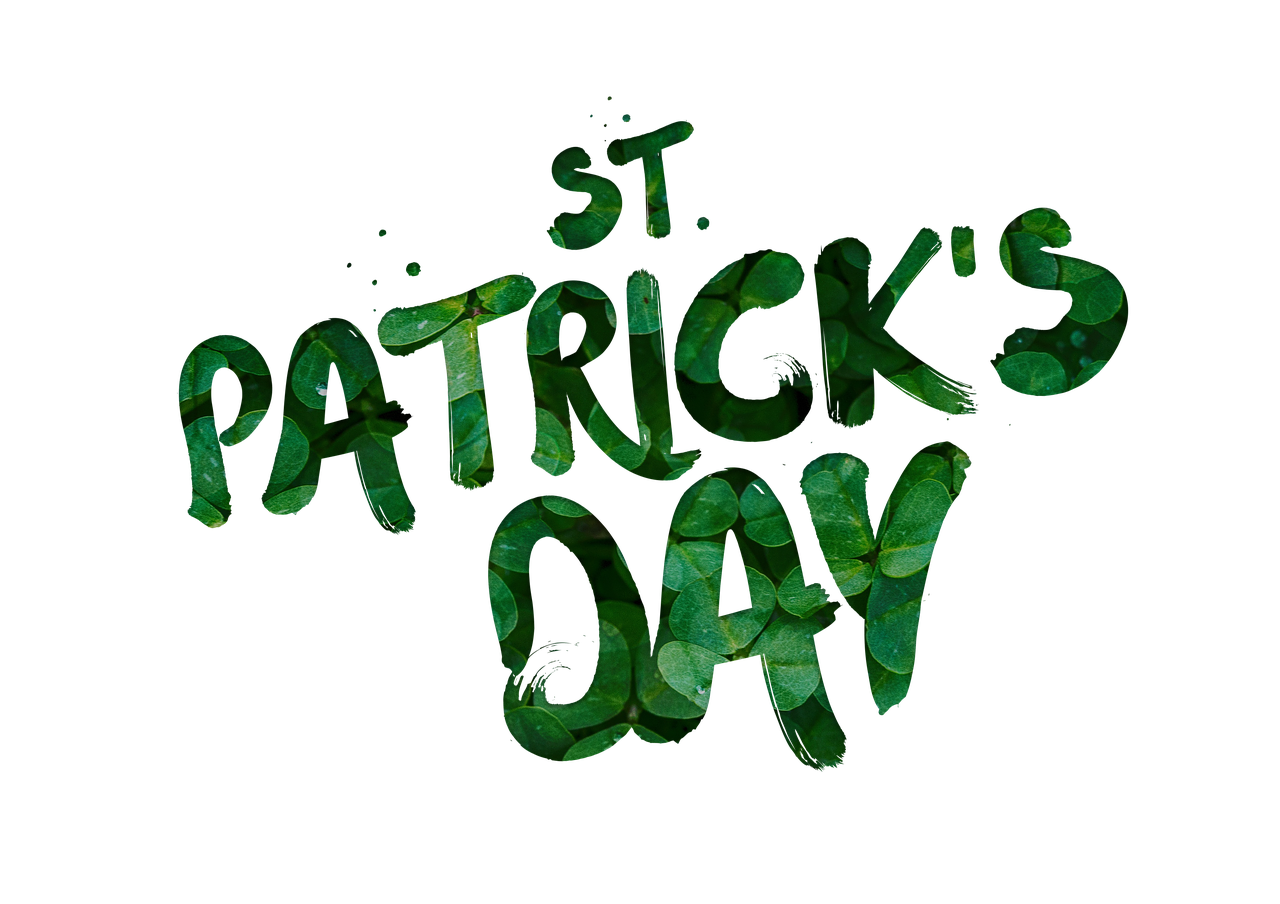St. Patrick’s Day Spiritual Meaning

Before diving in, please note: This post is for informational purposes only. If you’d like to know more about how we approach topics, feel free to check out our friendly Disclaimer Page.
Hey there, amazing readers! 🖐️ Just a quick note: yes, we know there are a lot of ads here. Trust us, we get it—it’s not the prettiest look, but they help us keep this blog alive and kicking. Those pesky little ads cover the costs of all the behind-the-scenes magic, from hosting and tech stuff to creating content we hope you’ll love.
We’re committed to delivering quality posts, and your support (even just sticking around despite the ads) means everything to us. So, bear with us, and thanks for helping us keep the good vibes rolling. Now, on to the fun stuff! 😉
TRANSLATE BUTTON AT THE END OF THE ARTICLE
The Spiritual Significance of St.
Patrick’s Day
St.
Patrick’s Day is a widely celebrated holiday that originated in Ireland but has transcended borders to become a global festivity.
Beyond the parades, green beer, and shamrocks, there is a deep and meaningful spiritual aspect to this day.
In this article, we will explore the spiritual significance of St.
Patrick’s Day, delving into the history, legends, and rituals associated with this holiday.
The Origins of St. Patrick’s Day
St.
Patrick’s Day, observed on the 17th of March, commemorates the death of St.
Patrick, the patron saint of Ireland.
But who was St.
Patrick, and why is he so revered?
St.
Patrick, originally named Maewyn Succat, was a 5th-century Christian missionary who played a pivotal role in spreading Christianity across Ireland.
The Transformation of Maewyn Succat
Born in Roman Britain, Maewyn Succat was kidnapped at the age of 16 and taken to Ireland as a slave.
During his captivity, he turned to spirituality, finding solace in his faith.
After six years, he managed to escape, returned to his family, and eventually became a Christian priest.
It was during this time that he adopted the name Patrick, inspired by his spiritual awakening.
The Legacy of St. Patrick
St.
Patrick is most renowned for using the shamrock, a three-leafed plant, to explain the Holy Trinity (the Father, the Son, and the Holy Spirit) to the Irish people.
This simple yet profound analogy played a crucial role in the conversion of Ireland to Christianity, leaving an indelible mark on the country’s spiritual landscape.
The Connection Between St. Patrick’s Day and Spirituality
St.
Patrick’s Day is not merely a celebration of Irish culture; it carries profound spiritual meaning for both the Irish and those who appreciate the essence of faith.
Renewal and Rebirth
One of the central themes of St.
Patrick’s Day is renewal.
In the spiritual context, it symbolizes the opportunity for individuals to shed their old habits and embrace a fresh, more virtuous path.
It’s a day to reflect on one’s life and make positive changes, much like the transformation St.
Patrick underwent.
Celebration of Faith
For devout Christians, St.
Patrick’s Day is a time to celebrate their faith.
It serves as a reminder of the power of one man’s unwavering belief in spreading the message of Christianity, ultimately converting an entire nation.
Explore the Path to Spirituality and Enlightenment – Start Here.
It’s a day to honor the impact of faith on communities and individuals.
Legends and Myths Associated with St. Patrick
St.
Patrick’s Day is steeped in legends and myths that add a layer of mystique to the celebration.
Banishing the Snakes
One of the most famous legends associated with St.
Patrick is the idea that he banished all the snakes from Ireland.
While there were never any snakes in Ireland to begin with, this tale is seen as a metaphorical representation of St.
Patrick driving away pagan beliefs and practices.
The Conversion of the Druids
Another captivating legend tells of St.
Patrick’s encounter with the Druids, the ancient religious leaders of Ireland.
It is said that he used his spirituality and charisma to convert them to Christianity, further solidifying his status as a spiritual icon.
Celebrating St. Patrick’s Day Spiritually
St.
Patrick’s Day can be a time for individuals to connect with their spirituality and faith in various ways.
Attending Religious Services
Many churches hold special services on St.
Patrick’s Day to honor the saint and reflect on the spiritual lessons his life offers.
It’s a time for communal prayer and reflection.
Acts of Kindness and Charity
In the spirit of St.
Patrick’s commitment to helping others, some individuals choose to perform acts of kindness and engage in charitable activities on this day.
This embodies the idea of selflessness and service to others, a core element of spirituality.
The Spiritual Significance of the Color Green
The color green is synonymous with St.
Patrick’s Day, adorning everything from clothing to decorations.
But what does green symbolize in a spiritual context?
The Connection to Nature
Green is often associated with the natural world, symbolizing growth, renewal, and the cycle of life.
It’s a reminder of the interconnectedness of all living things and our spiritual connection to the Earth.
Hope and Optimism
In the realm of spirituality, green represents hope and optimism.
It’s a color that encourages us to have faith in positive outcomes and to nurture the seeds of our dreams.
Healing and Balance
Many believe that green possesses healing properties.
It is associated with the heart chakra, signifying balance, harmony, and emotional well-being.
St. Patrick’s Day: A Day of Forgiveness
Forgiveness is a profound and spiritual concept that resonates deeply with the essence of St.
Patrick’s Day.
St. Patrick’s Journey to Forgiveness
St.
Patrick’s own life was a testament to forgiveness.
After enduring years of slavery and hardship, he forgave his captors and later returned to the land of his suffering to spread the message of love and forgiveness.
The Practice of Forgiveness
On this day, individuals are encouraged to reflect on their capacity for forgiveness.
It’s a time to release grudges, let go of resentment, and embrace the transformative power of forgiveness.
Music and Spirituality: The Role of Celtic Music
Celtic music is an integral part of St.
Patrick’s Day celebrations.
How does this music contribute to the spiritual atmosphere of the holiday?
A Connection to Ancient Traditions
Celtic music is deeply rooted in ancient Irish traditions, reflecting the spirituality of the land.
Its haunting melodies and poignant lyrics evoke a sense of nostalgia and longing, touching the soul.
The Power of Music in Spirituality
Music has long been associated with enhancing spiritual experiences.
It can elevate the soul, induce meditation, and facilitate a deeper connection to one’s spiritual self.
St. Patrick’s Day: A Time for Reflection and Gratitude
In the hustle and bustle of modern life, St.
Patrick’s Day offers a moment of respite for reflection and gratitude.
Gratitude for Spiritual Growth
Take this day to express gratitude for your own spiritual growth and the lessons you’ve learned on your journey.
Reflecting on Your Faith
Use St.
Patrick’s Day as an opportunity to reflect on your faith and how it has shaped your life.
Consider the ways in which your spirituality has brought you peace and purpose.
Final Thoughts
In conclusion, St.
Patrick’s Day is far more than just a celebration of Irish culture.
It carries a deep spiritual significance that transcends borders and belief systems.
Whether you’re a devout Christian, a spiritual seeker, or someone looking to connect with the essence of faith, St.
Patrick’s Day provides an opportunity for renewal, reflection, and a celebration of the human spirit’s capacity for transformation.
As you celebrate this holiday, may you find inspiration in the story of St.
Patrick and the rich spiritual tapestry he weaved.
Frequently Asked Questions
1.
Why is St.
Patrick’s Day celebrated on March 17th?
St.
Patrick’s Day is celebrated on March 17th to mark the death of St.
Patrick, the patron saint of Ireland.
This date was chosen to honor his memory and the significant contributions he made to the spread of Christianity in Ireland.
2.
Is St.
Patrick’s Day only celebrated in Ireland?
No, St.
Patrick’s Day is celebrated worldwide, with major festivities in countries like the United States, Canada, Australia, and the United Kingdom.
It has become a global celebration of Irish culture and spirituality.
3.
What is the significance of the shamrock on St.
Patrick’s Day?
The shamrock is associated with St.
Patrick’s Day because St.
Patrick used it to explain the concept of the Holy Trinity (the Father, the Son, and the Holy Spirit) to the Irish people.
It became a symbol of the Christian faith in Ireland.
4.
Are there any specific rituals associated with St.
Patrick’s Day?
Common rituals include attending church services, wearing green clothing, and participating in parades.
Many people also enjoy traditional Irish foods and drinks as part of the celebration.
5.
How can I make my St.
Patrick’s Day celebration more spiritually meaningful?
You can make your St.
Patrick’s Day celebration more spiritually meaningful by attending religious services, reflecting on your faith journey, and engaging in acts of kindness or charity to help those in need.
6.
Are there any other saints associated with Ireland?
Yes, apart from St.
Patrick, there are other saints associated with Ireland, including St.
Brigid and St.
Columba, each with their own unique contributions to Irish spirituality and culture.
7.
Is St.
Patrick’s Day a public holiday in Ireland?
Yes, St.
Patrick’s Day is a public holiday in Ireland, and it is celebrated with parades, festivals, and various events throughout the country.
It is a day for both religious observance and national pride.
8.
Are there any specific prayers associated with St.
Patrick’s Day?
Yes, there are several prayers attributed to St.
Patrick, such as the “Breastplate of St.
Patrick.” These prayers are often recited on St.
Patrick’s Day and reflect his deep spirituality.
9.
How do people in Ireland celebrate St.
Patrick’s Day from a spiritual perspective?
In Ireland, St.
Patrick’s Day is a public holiday, and many people attend church services, participate in parades, and engage in acts of kindness.
It’s a time for both religious observance and national pride.
10.
Can people of other faiths or beliefs find meaning in St.
Patrick’s Day?
Absolutely.
While St.
Patrick’s Day has Christian origins, its themes of transformation, renewal, and the power of faith can resonate with people of various spiritual beliefs and even those who identify as secular.
It’s a day to celebrate the universal human journey of growth and self-discovery.

The Enlightenment Journey is a remarkable collection of writings authored by a distinguished group of experts in the fields of spirituality, new age, and esoteric knowledge.
This anthology features a diverse assembly of well-experienced authors who bring their profound insights and credible perspectives to the forefront.
Each contributor possesses a wealth of knowledge and wisdom, making them authorities in their respective domains.
Together, they offer readers a transformative journey into the realms of spiritual growth, self-discovery, and esoteric enlightenment.
The Enlightenment Journey is a testament to the collective expertise of these luminaries, providing readers with a rich tapestry of ideas and information to illuminate their spiritual path.
Our Diverse Expertise 🌟
While our primary focus is on spirituality and esotericism, we are equally passionate about exploring a wide range of other topics and niches 🌍📚. Our experienced team is dedicated to delivering high-quality, informative content across various subjects ✨.
To ensure we provide the most accurate and valuable insights, we collaborate with trusted experts in their respective domains 🧑🏫👩🏫. This allows us to offer well-rounded perspectives and knowledge to our readers.
Our blog originally focused on spirituality and metaphysics, but we’ve since expanded to cover a wide range of niches. Don’t worry—we continue to publish a lot of articles on spirituality! Frequently visit our blog to explore our diverse content and stay tuned for more insightful reads.








